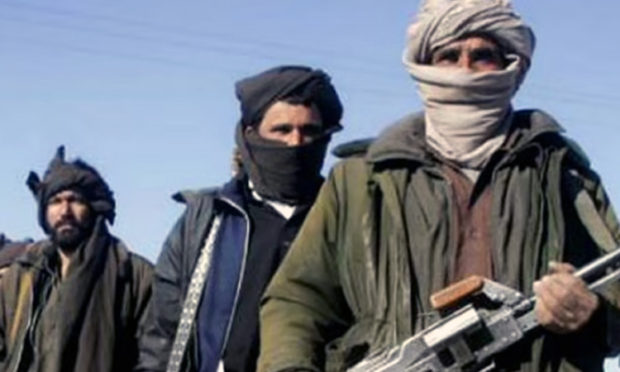
‘More than peace settlement, Taliban and Pakistan interested in withdrawal of international forces’
Team Udayavani, Sep 29, 2020, 11:05 AM IST

Washington: The Taliban and Pakistan are interested in the withdrawal of international forces from Afghanistan more than a peace settlement, a former Pakistani diplomat has said, warning that the ongoing peace talks in Doha are headed towards failure.
“I am not optimistic about the outcome of the talks. The US has made all the major concessions upfront. The Taliban know that the US is eager to withdraw from Afghanistan. As they see it, they are just negotiating the withdrawal of foreign forces and the restoration of the status quo ante, when they ruled Afghanistan as its Islamic Emirate,” Pakistan’s former Ambassador to the US Husain Haqqani said on Monday.
That is unacceptable to the rest of the Afghans, said Haqqani in a testifying, virtually, before the British House of Lords International Relations and Defence Committee.
Drawing parallels between the US negotiating strategy towards the Taliban with the Paris Peace Talks at the end of the war in Vietnam, he said that then Henry Kissinger said he wanted a decent interval between the US withdrawal and the collapse of the US-backed government of South Vietnam.
The Afghan government could prove stronger than the US-backed South Vietnam government and might fight on for a pluralist Afghanistan with the support of other countries, including India, he said.
The US withdrawal was a function of America’s tendency to lose interest in wars that go on too long, he added.
“President (Donald) Trump wants to withdraw regardless of the consequences. If that happens, a Pakistan-backed Taliban march in Kabul is the most likely outcome. As it is unlikely that the people of Afghanistan will accept the return of the Taliban to power, there could be civil war again,” Haqqani said.
Haqqani said that Pakistan has facilitated talks between the US negotiators and the Taliban leaders, saying it did not know anything.
It wants the US to withdraw from Afghanistan and would like the Taliban, as Pakistan proteges, to have a major share in post-withdrawal government, he asserted.
“Pakistan ended support to the Taliban government only after it felt the US might threaten it after 9/11. Pakistan’s media is already celebrating the impending Taliban victory,” he said.
China, he said, hopes to emerge as the major power in Afghanistan and Central Asia, especially after Pakistan emerges dominant in Afghanistan.
“Pakistan is already a key Chinese ally and China would like to expand the China-Pakistan Economic Corridor to Afghanistan and beyond. That would ensure that China and Pakistan control the connectivity of Afghanistan and its Central Asian neighbours to the rest of the world,” he said.
Noting that Iran, Russia and Pakistan want a US withdrawal, Haqqani said that beyond that they do not have a commitment to peace in Afghanistan.
Pakistan would prefer that the Americans and NATO withdraw with an agreement that gives the Taliban an upper hand without Pakistan having to fight to bring the Taliban back to power. Pakistan would also like the US and western governments to commit to giving economic aid to the Taliban-led future Afghan government, he said.
Former US Special Representative for Afghanistan and Pakistan, James Dobbins, and Laurel Miller from the Crisis Group, also expressed pessimism about the future of Afghanistan but insisted that negotiations were the better option for the US policymakers.
Udayavani is now on Telegram. Click here to join our channel and stay updated with the latest news.
Top News

Related Articles More

Intruder killed along India-Pakistan border in Rajasthan

Kazakhstan says 42 people likely dead in Azerbaijan Airlines’ plane crash

Killed in Russia-Ukraine war six months ago, UP man’s body brought back home

‘We should try again’: Punjab Assembly Speaker on Vajpayee’s failed India-Pak peace initiative

Delhi Police crackdown on illegal immigration of Bangladeshi citizens, 11 arrested
MUST WATCH
Latest Additions
Thanks for visiting Udayavani
You seem to have an Ad Blocker on.
To continue reading, please turn it off or whitelist Udayavani.


























